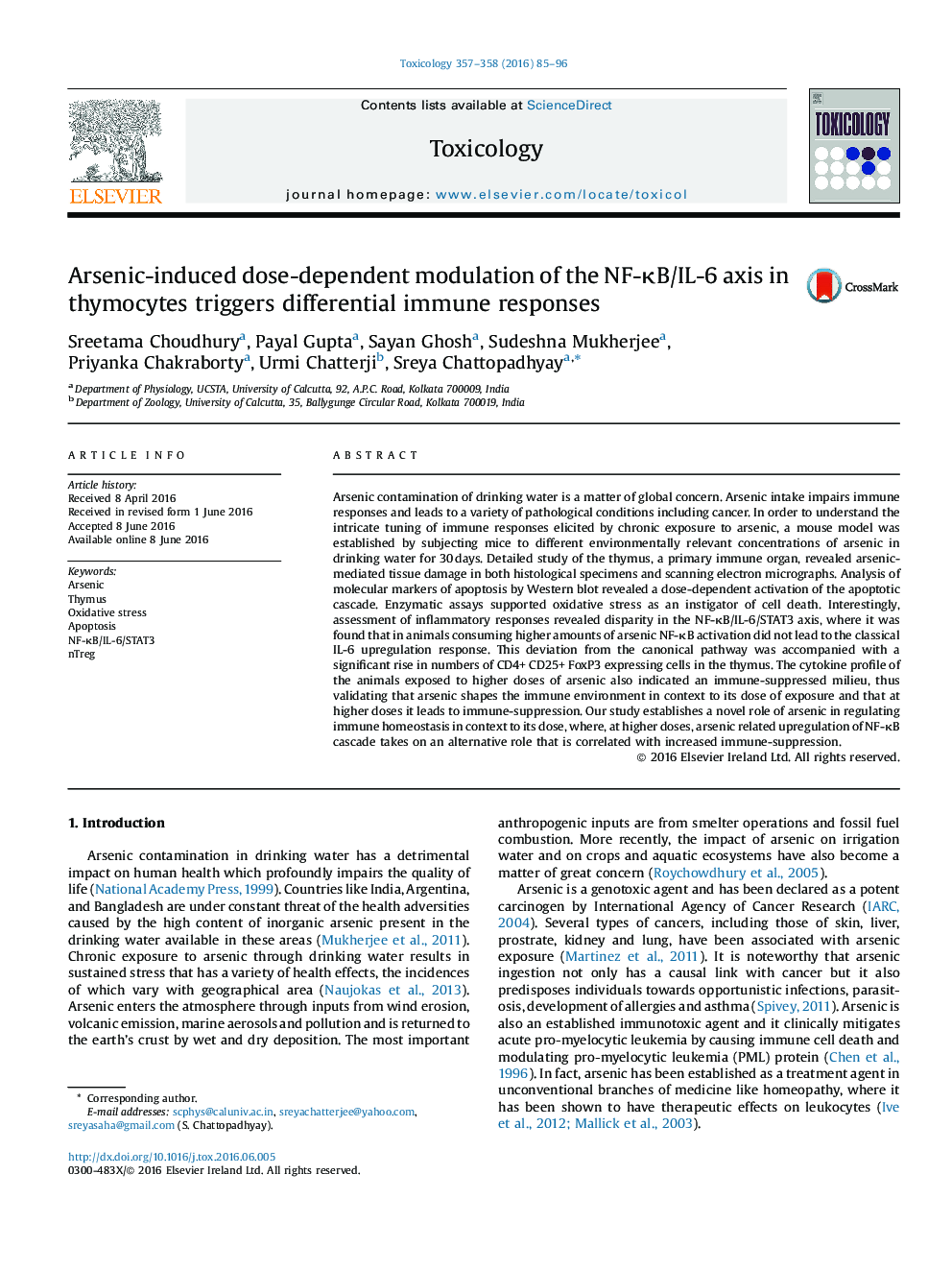| کد مقاله | کد نشریه | سال انتشار | مقاله انگلیسی | نسخه تمام متن |
|---|---|---|---|---|
| 2595439 | 1562309 | 2016 | 12 صفحه PDF | دانلود رایگان |

• We for the first time explicitly show that arsenic exposure causes morphological damage to the thymus and results in heightened death of thymocytes.
• Our data suggests that arsenic-induced apoptosis occurs due to increase in cellular oxidative and nitrosative stress.
• We have for the first time established a non-classical role of NF-κB, correlating it with increase in FoxP3 expression.
• The % of CD4+ CD25+ T cells were high and expression of FoxP3 has also increased at higher doses of arsenic indicating an nTreg bias.
Arsenic contamination of drinking water is a matter of global concern. Arsenic intake impairs immune responses and leads to a variety of pathological conditions including cancer. In order to understand the intricate tuning of immune responses elicited by chronic exposure to arsenic, a mouse model was established by subjecting mice to different environmentally relevant concentrations of arsenic in drinking water for 30 days. Detailed study of the thymus, a primary immune organ, revealed arsenic-mediated tissue damage in both histological specimens and scanning electron micrographs. Analysis of molecular markers of apoptosis by Western blot revealed a dose-dependent activation of the apoptotic cascade. Enzymatic assays supported oxidative stress as an instigator of cell death. Interestingly, assessment of inflammatory responses revealed disparity in the NF-κB/IL-6/STAT3 axis, where it was found that in animals consuming higher amounts of arsenic NF-κB activation did not lead to the classical IL-6 upregulation response. This deviation from the canonical pathway was accompanied with a significant rise in numbers of CD4+ CD25+ FoxP3 expressing cells in the thymus. The cytokine profile of the animals exposed to higher doses of arsenic also indicated an immune-suppressed milieu, thus validating that arsenic shapes the immune environment in context to its dose of exposure and that at higher doses it leads to immune-suppression. Our study establishes a novel role of arsenic in regulating immune homeostasis in context to its dose, where, at higher doses, arsenic related upregulation of NF-κB cascade takes on an alternative role that is correlated with increased immune-suppression.
Journal: Toxicology - Volumes 357–358, 16 May 2016, Pages 85–96